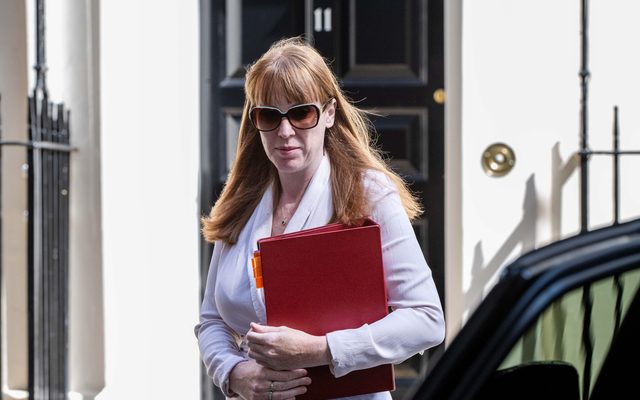- What Senior industry executives including from the British Property Federation and the Property Industry Alliance are appealing to government to create a scheme to help ailing landlords
- Why A dramatic fall in rental payments is expected to create distress for some landlords
- What next Proposals are being put forward, including grants to businesses to pay rents, with an urgency to find a solution prior to the next quarter day
The property industry is appealing to government to put together a package to support landlords that are under pressure as a result of businesses not paying their rent, React News can reveal.
The impact of the COVID-19 pandemic has resulted in senior figures from the industry, including the Property Industry Alliance and the British Property Federation, engaging with a range of government departments including The Treasury to find a solution.
Whilst no scheme is advanced with government a source close to the discussions said that details are “taking shape quickly” and there is an urgency to find a solution ahead of the next quarter day at the end of June which is likely to see dramatic rental shortfalls paid, far eclipsing the losses felt by landlords last month.
Central to the proposals being put forward are a support scheme for businesses that have been forced to close, primarily in the retail and leisure sectors, that would be dedicated to paying overheads, primarily rent, but also possibly service charge and insurance.
- What the BPF is proposing
- The BPF is proposing a Furloughed Space Grant Scheme, similar to schemes put in place in European countries including Denmark, whereby a proportion of fixed costs would be paid by government on a tapered basis dependent upon the proportion of revenue lost.
- It would see:
- • 80% paid if turnover had dropped 80-100%
- • 50% paid if turnover had dropped 60-80%
- • 25% paid if turnover had dropped 40-60%
- The BPF proposes that applications would be made via the British Business Bank and would require a signed application from a certified auditor setting out the expected decrease in turnover for the relevant period.
- Any overpayment – if turnover fell by less than forecast – would be clawed back by government after the end of the relevant period.
No easy application

There are a large number of complexities and varieties of ways in which such a process could be implemented.
These include whether payments are made directly to landlords or via tenants and if they were made to tenants the means by which it can be ensured that they are passed on. One proposal would see businesses qualify only if they agreed to pass the benefit through to landlords but in exchange received relaxed or reduced rental terms.
Further complexities surround how to determine how much support should be given to individual businesses and the duration of that support. This could be based upon the proportion of turnover that has been lost compared to trading prior to the pandemic. Treasury will also have to weigh the cost of the scheme in the context of how long it envisages the lockdown could impact businesses for even after measures are relaxed.
It is hoped that through undertaking such a scheme that the health of occupiers and jobs will be preserved as well as the value of pensions underpinned by the real estate industry. It is possible that it could also have a knock-on positive impact on lenders to property, with landlords in a better position to make interest payments, and reduce the amount of forbearance that is required by banks. The economic pain would be more evenly spread through the chain rather than sitting solely with landlords or lenders.
On 24 March, the day after the UK was put into lockdown, the government put in place a moratorium on commercial landlords evicting tenants for at least three months. Although there was no legal change in terms of occupiers’ obligation to provide rent it is understood that some major landlords considered this to be a green light given by government to businesses that they did not have to pay.
Subsequently, the quarter day that fell the day after the announcement for rent due in advance for the second quarter saw firms across the real estate industry experience shortfalls in rent, the most dramatic being those with high exposures to retail and leisure tenants that were forced to close as they were deemed non-essential.
“All must bear some of the cost”

Ion Fletcher, director of policy (finance), said: “Property owners are working closely with their customers to find solutions that protect businesses in distress. Rent deferrals and rent holidays have been widely agreed, as owners take seriously their responsibilities to their customers and to the communities in which they provide a safe built environment. Everyone from businesses to property owners to lenders recognises that these are exceptional times and that they must all bear some of the cost arising from this extraordinary situation.
“While the extensive support package implemented by government is very welcome, it doesn’t help businesses with their property costs. Without some form of further support, many otherwise viable businesses and those that provide them with business space will become insolvent in the coming months, causing large-scale unemployment, economic damage and significant falls in the value of the property assets that underpin the pensions and long term savings of 45 million people around the UK.
“We have been in close and continuous discussions with government officials over the last few weeks to highlight the difficult position that property owners find themselves in as a result of their customers’ distress. We’re putting proposals together to help the sector survive the pandemic as best it can, and to share the burden between all those with a stake in our towns and cities.”




